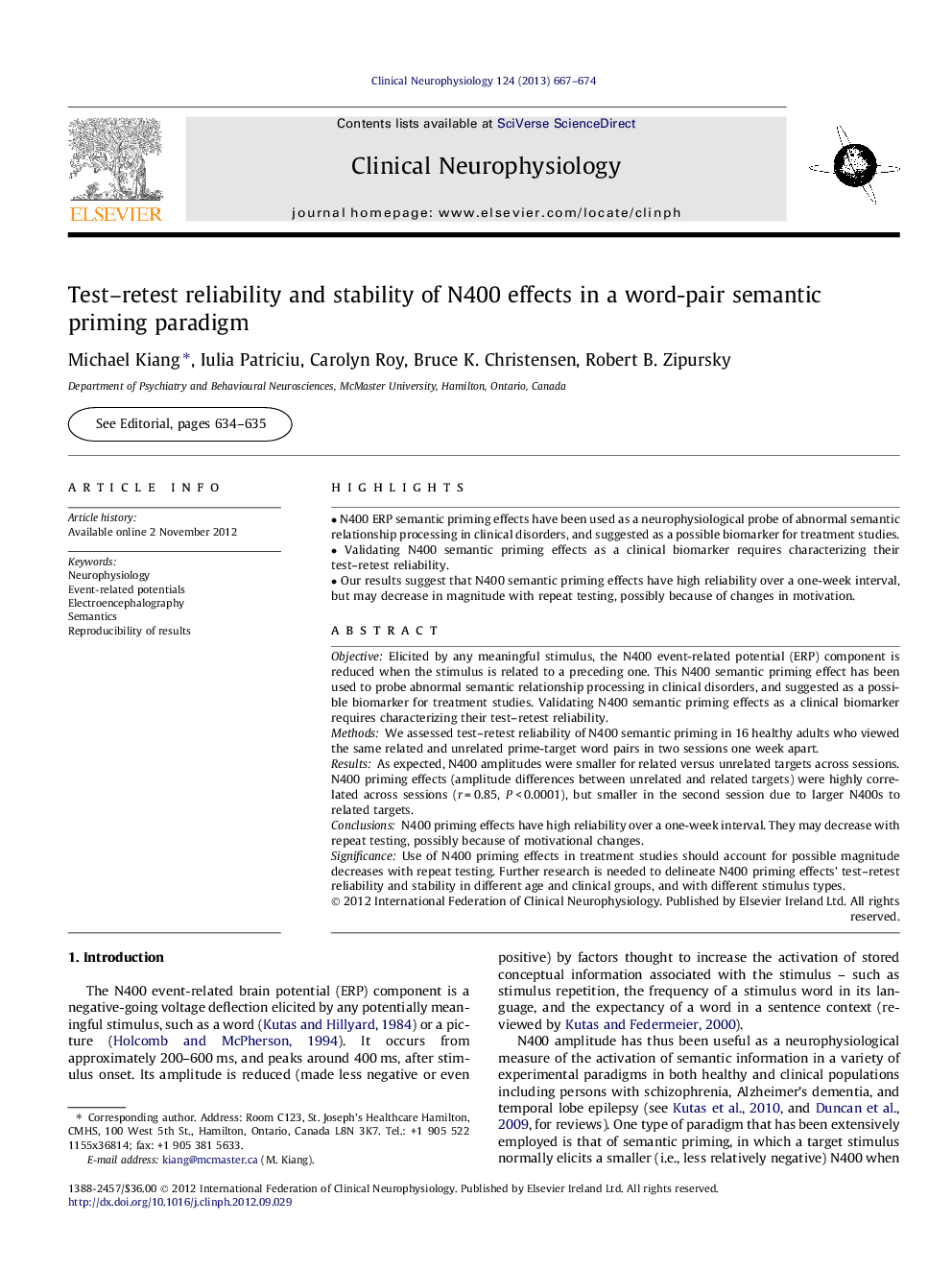| Article ID | Journal | Published Year | Pages | File Type |
|---|---|---|---|---|
| 3044176 | Clinical Neurophysiology | 2013 | 8 Pages |
ObjectiveElicited by any meaningful stimulus, the N400 event-related potential (ERP) component is reduced when the stimulus is related to a preceding one. This N400 semantic priming effect has been used to probe abnormal semantic relationship processing in clinical disorders, and suggested as a possible biomarker for treatment studies. Validating N400 semantic priming effects as a clinical biomarker requires characterizing their test–retest reliability.MethodsWe assessed test–retest reliability of N400 semantic priming in 16 healthy adults who viewed the same related and unrelated prime-target word pairs in two sessions one week apart.ResultsAs expected, N400 amplitudes were smaller for related versus unrelated targets across sessions. N400 priming effects (amplitude differences between unrelated and related targets) were highly correlated across sessions (r = 0.85, P < 0.0001), but smaller in the second session due to larger N400s to related targets.ConclusionsN400 priming effects have high reliability over a one-week interval. They may decrease with repeat testing, possibly because of motivational changes.SignificanceUse of N400 priming effects in treatment studies should account for possible magnitude decreases with repeat testing. Further research is needed to delineate N400 priming effects’ test–retest reliability and stability in different age and clinical groups, and with different stimulus types.
► N400 ERP semantic priming effects have been used as a neurophysiological probe of abnormal semantic relationship processing in clinical disorders, and suggested as a possible biomarker for treatment studies. ► Validating N400 semantic priming effects as a clinical biomarker requires characterizing their test–retest reliability. ► Our results suggest that N400 semantic priming effects have high reliability over a one-week interval, but may decrease in magnitude with repeat testing, possibly because of changes in motivation.
